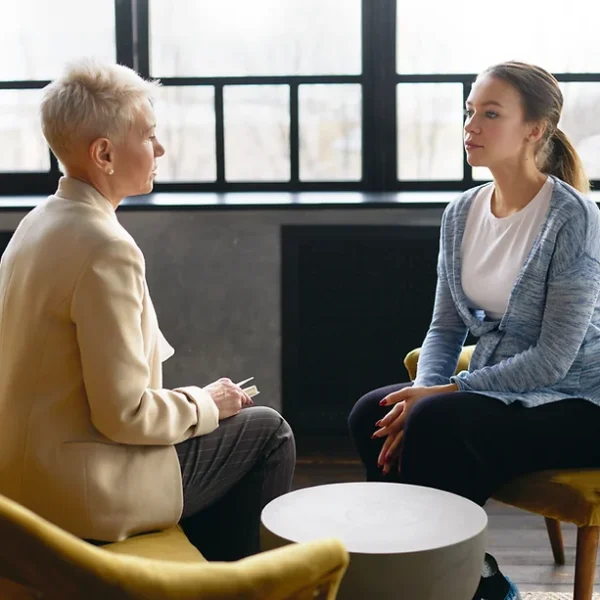What to
Expect
We understand that taking the first step towards counselling can feel daunting, but please don’t let that put you off. I work in a friendly, relaxed and informal manner. Whether you're experiencing difficult emotions, facing life changes, or seeking personal growth, we're here to support you on your journey. Our aim is to provide a warm, accepting space where you feel safe to explore your thoughts and feelings at your own pace.
Initial Consultation

We offer a free 30-minute introductory session to help you decide if counselling with us feels right for you. This initial meeting gives us the opportunity to:
- Touch on what brings you to counselling
- Share how we might work together
- Answer questions or concerns you may have
- Explore whether we feel we're the right fit to support you
There's no obligation to continue after this session - it's important that you feel comfortable with your choice of counsellor and approach. You may have decided at the end of this initial meeting or you may want to take some time to think things through. Whatever you choose to do is absolutely fine. If we are not sure we are best placed to meet your needs, we will be honest and let you know. If it would be helpful to you and we are able to, we will refer you to someone else that may be able to help.
Our Approach
Rather than using a one-size-fits-all approach, we adapt our way of working to what feels most helpful for you. As Humanistic therapists, our work is rooted in the principles of empathy, acceptance and our belief in your ability to change and grow towards your full potential. We blend different humanistic therapeutic approaches to best support your individual needs. Whether you prefer to explore through traditional talking therapy or would like to incorporate more creative approaches, we can work together to find what feels most helpful for you.
We believe that you are the expert in your own experience, and our role is to walk alongside you, offering support, insight, and new perspectives as you explore what matters to you. Through our collaborative relationship, we create a space where you can:
- Explore your thoughts and feelings safely
- Understand yourself and your experiences more deeply
- Develop new ways of coping with life's challenges
- Work towards the changes you want to make
- Whether you prefer traditional talking therapy or would like to explore more creative ways of working, we'll find an approach that suits you.
Session Information
Our regular sessions last one hour and typically take place at the same time each week, providing a consistent space for your therapeutic work. We offer both daytime and evening appointments and provide both short-term counselling for specific issues and open-ended therapy for deeper exploration, depending on your needs
The first session is a little different as it is an assessment session. During this session, we will ask more questions than usual so that we can gain a deeper understanding of you, your life and your needs. During the assessment session, we will ask you questions like:
What has brought you to counselling now?
You can tell us as much about your problem as you are able and let us know if you have had any support with this issue now or in the past.
What do you want from counselling?
Let us know what you would like to get from counselling. This may be clear goals you have or a more general sense of what you would like to achieve. Sometimes this can feel a bit tricky but don’t worry we can explore it together and discuss how best we can help you achieve what you are looking for.
What would you like to know about counselling sessions?
This is a chance for you to get a sense of us and for us to explain how we work. We welcome any questions you may have as it is important you feel informed and understand what to expect.
From then on, our sessions are led by you and are yours to use in the way that feels most helpful. You can decide on the issues you wish to explore and the pace at which you wish to tackle them. Your therapist will maintain clear boundaries and confidentiality to create a safe space where you can speak openly about whatever is on your mind.
How We Work
We offer three flexible ways of working to suit your preferences and circumstances:
In Person

Meeting face-to-face in our comfortable therapy room in Denmead allows us to:
- Build a personal connection in a dedicated therapeutic space
- Work with both verbal and non-verbal communication
- Create a physical space away from your daily life for reflection and exploration
Online

Our online sessions offer the same quality of therapeutic support with additional convenience:
- Access support from the comfort of your own space
- Save travel time and costs
- Maintain continuity of sessions regardless of location
- Work together even when circumstances prevent meeting in person
Telephone

Some clients find telephone counselling particularly helpful as it:
- Offers complete flexibility of location
- Can feel less intimidating than face-to-face meetings
- Allows for deep focus on verbal communication
- Provides an additional layer of privacy
Areas We Support
We work with a wide range of life experiences and challenges, including:
Emotional Wellbeing
Anxiety and depression
Stress management
Overwhelming emotions
Low self-esteem
Identity exploration
Life Changes and Transitions
Career changes
Relationship difficulties
Major life decisions
Personal growth
Life stage transitions
Specialist Areas
Grief and bereavement
End of life support
Loss and change
Workplace Conflict
Neurodivergent experiences
NHS and Education Sector staff support
Whether your difficulties are recent or long-standing, we offer a non-judgmental space to explore them. I have experience in supporting those navigating grief and loss, workplace stress, as well as working with neurodivergent individuals who are exploring their experiences and challenges.
